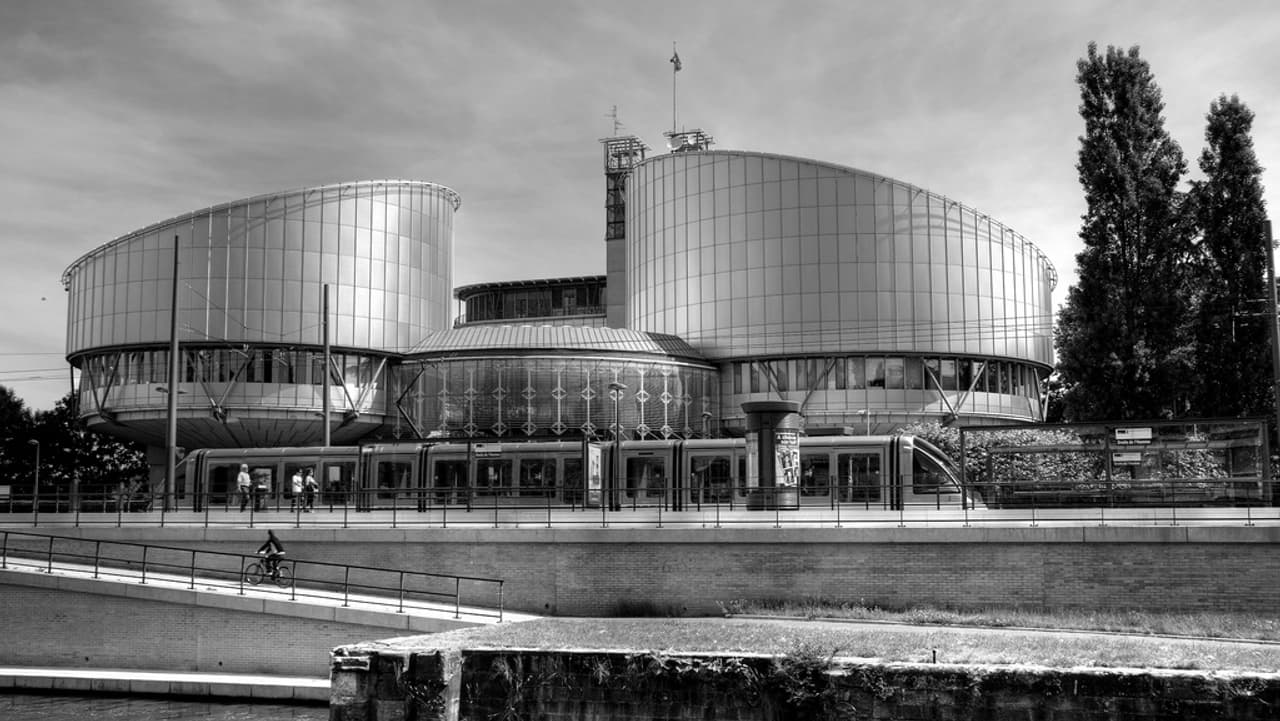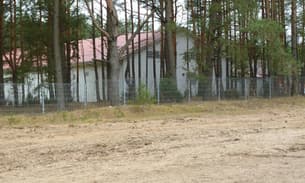
Poland’s complicity in CIA torture programme confirmed as European Court rejects Warsaw’s appeal
The European Court of Human Rights in Strasbourg via Flickr
The European Court of Human Rights today confirmed that the Polish government was complicit in the CIA’s secretive programme of rendition, detention and interrogation.
The Court in Strasbourg today rejected a challenge from the Polish government to a landmark ruling from last July, a decision which now makes that original judgement final.
July’s judgment said that two current Guantánamo inmates, Abu Zubaydah and Abd al-Rahim al-Nashiri, were held in a CIA prison in Poland, that they had been subject to torture, and that Poland failed in its duty under European human rights law to protect them or investigate what happened.
Poland had requested a referral to the Court’s grand chamber, effectively appealing the decision, which could not become final while the request was pending.
The grand chamber today refused the request, but did not give any reasons.
It means that the Polish government now faces a substantial bill for damages and legal costs.
In the July judgment, both men were awarded €100,000 in damages and Abu Zubaydah another €30,000 in legal costs.
However, Abu Zubaydah’s US lawyer confirmed to the Bureau that if the money was made available they would not claim the legal costs, and that Abu Zubaydah would be donating the full €100,000 in damages to victims of torture.
Poland is the first EU member state to be found guilty of complicity in the CIA’s secret detention programme and responsible for multiple violations of the detainees’ rights.
The case concerned the treatment of the two detainees, who were held by the CIA in Poland and subjected to torture, incommunicado detention and secret transfer to other CIA black sites.
Both men were secretly rendered to Poland on December 5 2002. Al-Nashiri was taken to Morocco on June 6 2003. Abu Zubaydah was transferred from Poland to a black site in Guantánamo Bay on September 22 2003.
Helen Duffy, European lawyer for Abu Zubaydah, told the Bureau the decision means that “Poland is required to finally conduct a thorough and effective investigation, make public information concerning its role and hold those responsible to account”.
She added: “This is an opportunity for Poland to reengage constructively, to address the crimes of the past and reassert its position as a supporter of the rule of law.”
The decision comes after the Senate intelligence committee published an executive summary of its investigation into the CIA’s detention and interrogation programme last December. Al-Nashiri and Abu Zubaydah were among the 119 detainees named in that summary report.
The European Parliament last week voted to resume investigating the complicity of EU member states in the CIA programme, in the wake of the new information revealed by the Senate’s summary.
The new information included confirmation of previous suspicions that the CIA paid the Polish government to continue hosting the black site, after the government refused to accept the planned transfer of new detainees, who the summary said included Khalid Sheikh Mohammed, the alleged mastermind of the September 11 2001 attacks on US cities.
Joe Marguiles, US lawyer for Abu Zubaydah, told the Bureau: “We are gratified but not surprised that the Court held to its prior judgment. The evidence was overwhelming when the Court ruled the first time, and now it’s irrefutable. The only question is whether Poland is sufficiently committed to the rule of law that it will conduct a meaningful investigation. So far, the evidence on that score is not promising.”
The Polish government claimed when requesting referral to the grand chamber that the presence of a CIA black site in Poland was not proven, and that Polish officials were unaware of what happened within the confines of the alleged black site.
In its letter to the ECHR requesting a referral, which has been seen by the Bureau, the Polish government said: “It is not enough to make an overall negative assessment of the HVD [High Value Detainee] programme and to make the respondent state’s cooperation under this programme plausible.”
The Polish government had also questioned the court’s finding that Abu Zubaydah and al-Nashiri were actually in Poland. In the letter, the government said that al-Nashiri’s allegations contained “unrebutted fact”, and that the body of evidence which suggested the two men were detained in Poland was “mostly circumstantial”.
Following the US Senate Intelligence Committee’s report into CIA rendition and “enhanced interrogation” techniques last December, former Polish president Alexander Kwasniewski admitted that he had allowed the US to operate its black site in Poland, but claimed he did not know torture was being carried out there.
Related story: European Parliament to investigate CIA’s torture and rendition operations in EU
Abu Zubaydah was the first detainee of the CIA’s detention and interrogation programme. He and al-Nashiri were two of around 17 so-called high value detainees.
Both al-Nashiri and Abu Zubaydah were subjected to the torture technique known as waterboarding, with US government documents showing Abu Zubaydah was waterboarded 83 times in one month.
Documents filed by Abu Zubaydah’s lawyers show he was transferred by the CIA on December 5 2002 to the village of Stare Kiejkuty in Poland from Thailand.
Abu Zubaydah is a stateless Palestinian who was born in Saudi Arabia. He was captured by the CIA from a house in Faisalbad, Pakistan, on March 28 2002 and held in detention by the CIA until September 2006, when he was transferred to US military custody at Guantanamo Bay.
Al-Nashiri is a citizen of Saudi Arabia. He has been charged with war crimes.
Abu Zubaydah also remains in indefinite detention in Guantánamo Bay and has never been charged with any crime, either before a military commission or in a civil court.
This report is part of a joint investigation with The Rendition Project and is being supported by the Freedom of the Press Foundation. To support the Freedom of the Press Foundation’s fundraising appeal for this investigation, please click here.
Follow Victoria Parsons on Twitter. Sign up to email updates from the Bureau here.



